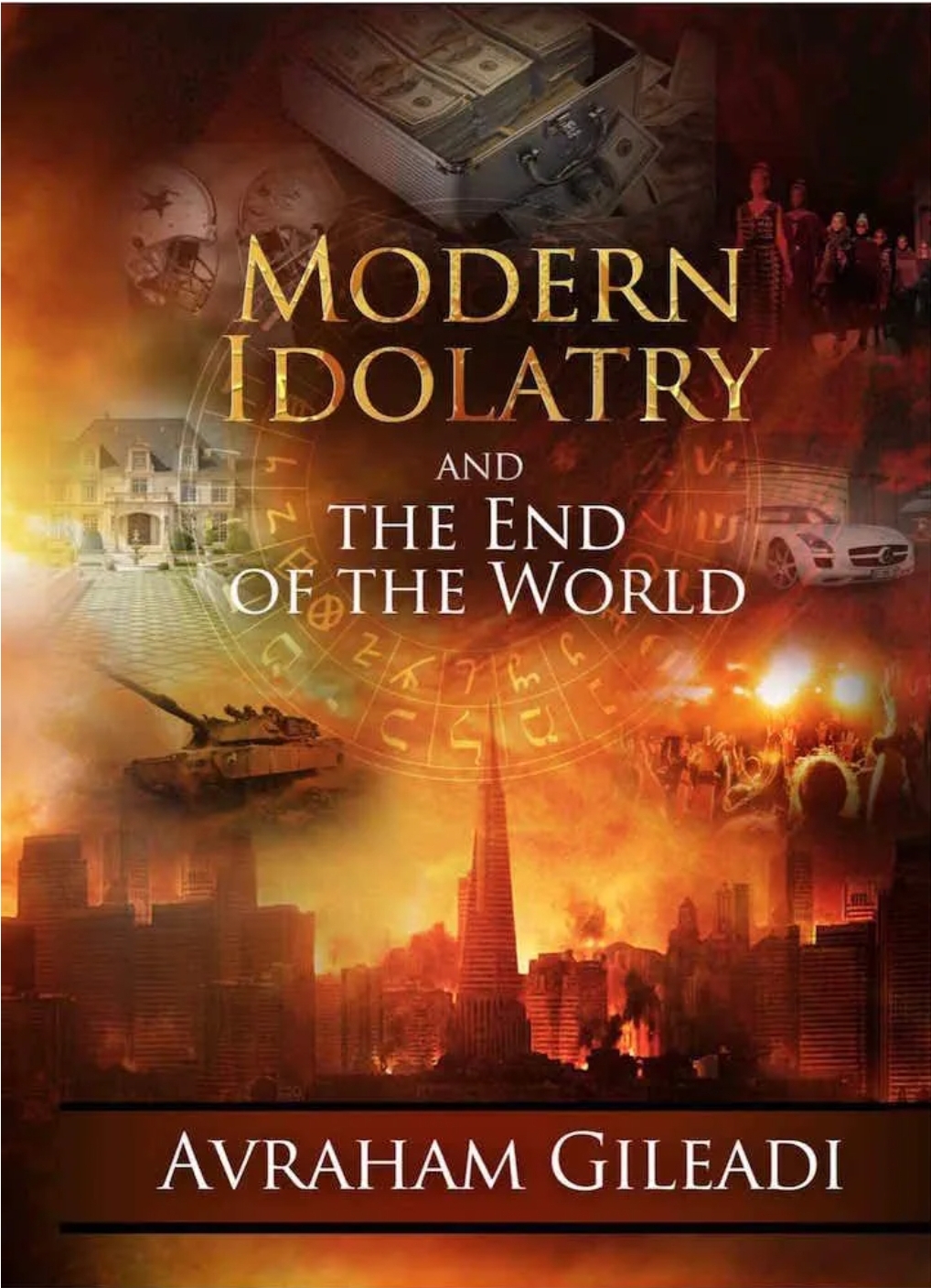Avraham Gileadi’s Modern Idolatry and the End of the World explores the concepts of idolatry and its consequences in the context of modern society. Gileadi is an expert in the study of the prophet Isaiah and often delves into the parallels between ancient and modern prophecies. In this work, he examines how idolatry has evolved and taken root in the modern world and how this relates to the downfall of societies, civilizations, and ultimately, the end of the world as described in biblical prophecy.
Here’s a detailed summary of the main themes and concepts in Modern Idolatry and the End of the World:
Idolatry: The Core of Spiritual Destruction
Gileadi begins by discussing the biblical concept of idolatry. Traditionally, idolatry is the worship of physical idols or false gods, but in modern society, idolatry has taken on a more insidious form. It no longer consists solely of carved statues or false deities but has expanded into the worship of materialism, self-interest, and societal structures that replace God as the ultimate focus of life.
Key Aspects of Modern Idolatry:
- Materialism: The obsession with wealth, status, and possessions is a form of idolatry. People place their trust and security in material things rather than in God. This leads to spiritual emptiness and a cycle of dissatisfaction.
- Self-Worship: Another significant form of modern idolatry is the elevation of the self. This can manifest as excessive pride, self-importance, or the pursuit of personal gain at the expense of others.
- Ideologies and Systems: Modern systems of governance, philosophy, and culture can become idols when people place their ultimate trust in these structures instead of in God. Political ideologies, social movements, and even human-made religions can take the place of divine truth.
The Role of Prophetic Warnings
Gileadi draws heavily on the teachings of Isaiah, who warned the people of Israel about the dangers of idolatry. He compares the ancient warnings about false gods with modern warnings about societal idols. The end of the world, as foretold by prophets, often comes as a result of widespread idolatry and spiritual decay. For Gileadi, the prophetic role is not just to foretell the end of times but to help people recognize the idols that are leading them astray.
He emphasizes the importance of returning to God and repentance. The end times in Isaiah’s prophecies are marked by a great purging, where the idolatrous societies will be judged. However, there is hope for those who turn away from idolatry and return to God.
Spiritual Israel vs. Modern Idolatry
In the context of modern society, Gileadi draws a distinction between those who are spiritual Israel—those who follow God and keep His commandments—and those who are caught up in idolatry. He explains that modern idolatry divides people into two distinct groups: those who seek to build Zion (the kingdom of God on earth) and those who align with Babylon (representing worldly values, materialism, and self-interest).
For Gileadi, being part of spiritual Israel means aligning oneself with divine principles, forsaking idolatry, and focusing on the creation of a society based on God’s law. This contrasts sharply with the societal values of Babylon, which lead to moral decay and eventual destruction.
The Psychological and Social Impact of Idolatry
Gileadi also explores the psychological and social effects of modern idolatry. As individuals worship idols—whether material wealth, political power, or personal ego—they experience a distortion of their values and worldview. This often leads to a disconnection from their true purpose and divine calling. Societal relationships are corrupted, as people become self-serving and lose sight of the greater good.
Idolatry, according to Gileadi, erodes moral integrity and undermines community structures. Societies built on idolatry ultimately collapse under their own weight, as they are based on false premises. This is why Gileadi sees the modern world as increasingly susceptible to divine judgment.
The End of the World: Judgment and Redemption
Gileadi ties the concept of idolatry directly to the biblical narrative of the end times. He argues that the final destruction of the world as we know it, as foretold in Isaiah and other prophetic texts, is a consequence of humanity’s collective idolatry. Societies that prioritize material wealth, power, and selfishness will face divine retribution.
However, Gileadi does not paint a bleak picture without hope. The process of judgment and destruction is also a means of purification. Those who recognize their idolatry, repent, and return to God will be redeemed. In the final days, there will be a division between those who remain faithful to God and those who persist in their worship of false idols. The faithful will build Zion, and the unfaithful will face the consequences of their idolatry.
The Importance of Personal and Collective Repentance
Central to Gileadi’s message is the need for repentance—not just individually but collectively as a society. He calls for a return to spiritual values and a recognition that living in accordance with God’s laws is the only way to avoid the fate of idolatrous civilizations. He sees the gathering of Israel, both physically and spiritually, as a key step in overcoming modern idolatry and preparing for the coming of the Messiah.
The Restoration of Truth
Gileadi emphasizes that in order to combat idolatry, there must be a return to truth. This truth is found in God’s word, as revealed through prophets, the scriptures, and personal revelation. The restoration of truth is what separates the faithful from those ensnared by idolatry. The return of the gospel in the last days, which Gileadi ties to the rise of Zion and the gathering of Israel, is the antidote to the false teachings and practices that lead to spiritual destruction.
Conclusion: Breaking Free from Idolatry
Gileadi concludes Modern Idolatry and the End of the World by urging individuals and societies to turn away from their false idols and return to God. The path to redemption, he argues, lies in rejecting worldly values and focusing on the eternal principles that God has revealed through His prophets. The restoration of true worship, based on divine law and truth, is the only way to overcome the judgment that awaits those who persist in idolatry.
Gileadi’s work serves as a call to examine our own lives and the idols we may unknowingly worship. Whether through materialism, self-centeredness, or reliance on worldly systems, idolatry remains a powerful force in society today. However, by aligning ourselves with God’s principles, we can escape the destructive consequences of modern idolatry and become part of the spiritual Israel that will build Zion in the last days.






